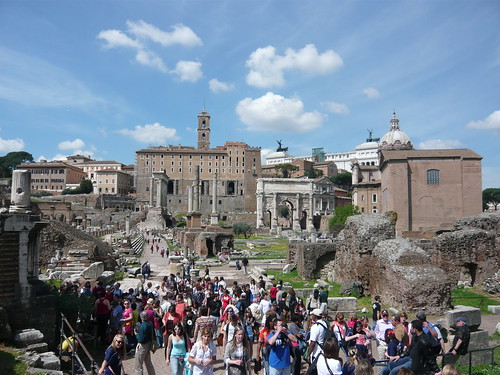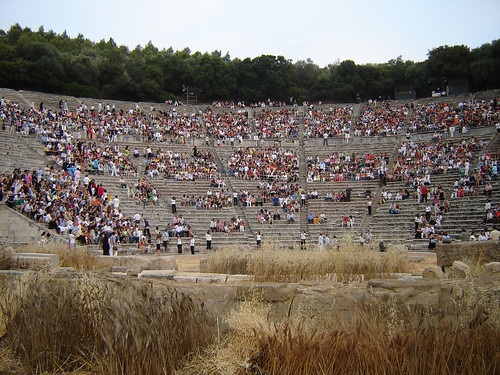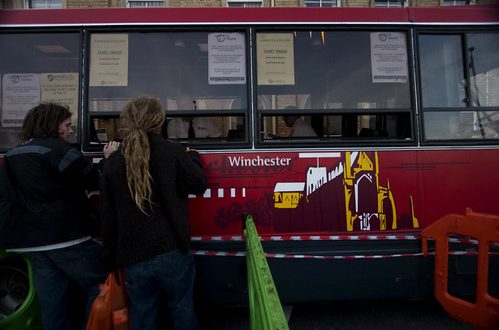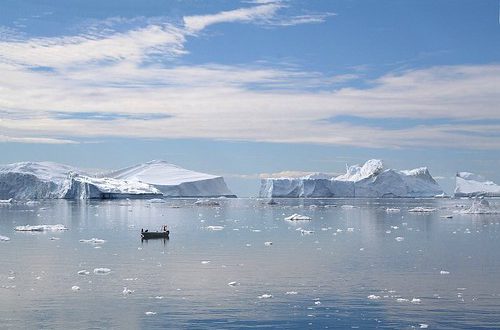 Having been a tour leader for an adventure travel company, I was interested to read the recently published World Monuments Fund (WMF) guidelines for sustainable tourism, all of which have been inadvertently followed for years by conscientious tourists and tour companies.
Having been a tour leader for an adventure travel company, I was interested to read the recently published World Monuments Fund (WMF) guidelines for sustainable tourism, all of which have been inadvertently followed for years by conscientious tourists and tour companies.
Getting the Messages Across
But what is blindingly obvious to some, it is definitely news to others. I do distinctly remember seeing in Karnak a large group with a very attractive young lady whose attire was more suited to a swimwear catwalk rather than viewing an ancient monument in Egypt. Whilst I watched with some bemusement at her rippling muscled boyfriend get increasingly more annoyed at the attention she was attracting, I couldnt help wondering why the guide hadnt informed this lady she was in an Islamic country and bearing so much flesh was in appropriate?
Ten Sustainable Tourism Tips
- Before you travel, read up on the history and culture of your destination
- Walk – don’t drive – you’ll see more and reduce your carbon footprint
- Be as eco-friendly as possible
- Show respect for and interest in the local culture
- Visit lesser-known places off the main tourist trails
- Be mindful of visitor wear and tear to monuments
- Take nothing but photographs (ask first)
- Support the local economy by choosing local restaurants, and buying crafts from local artisans
- Help threatened sites, either through donations to organizations like the World Monuments Fund or by volunteering
- Raise awareness about responsible tourism by sharing your experiences on Facebook, Flickr, or your own travel blog
In a similar vein, whilst working in Turkey, cruise ships docking in Kushadasi would often operate day trips to Ephesus. I overheard one member of said group ask what the crescent and star represented on the flags she was seeing. When she was informed it was the Turkish flag, she asked “whats it doing in Greece?” Hadnt she been told she was now in another country?
Holiday reps, guides and tour leaders surely must play their part in driving these messages home to people who are not be aware of what their responsibilities as tourists are.
Package Tour Operators
I attended a friends wedding on a Greek Island a few years ago and the cheapest solution was to take a package holiday. The resort was purpose-built with the main focus on the pool and bar area and the reps knowledge of the island appeared to be limited to what day-tours were available and which were the cheapest bars. Finding a restaurant which served local cuisine and wasnt blasting out sky sports was a feat in itself and I positively cringed when I overheard a distinctly northern accent remark she said it was mashed potato, but it doesnt taste like mashed potato.
So how do you get the WMF guidelines through to the 2-weeks in the sun brigade, whos only interested in staying in a resort, getting a tan and drinking cheap beer?
Whilst the WMF suggests using the Internet to research countries, these types of tourists should be reminded they are visiting a foreign country. Travel agents who specialise in package holidays should include more information on the country being visited and remind their clients they are visitors!
Following the Guidelines
Not all the guidelines are easy to follow though. Sometimes its impossible to visit the suggested lesser-known sites by public transport or bike, forcing us to use a tour or taxi.
Recycling is not always an option when overseas where the emphasis is bringing in the money into the area rather than preserving the planet. Friends of mine recently stayed in Portugal and automatically separated their recycling from the rubbish, only to find there was no recycling collection.
The reality of finding eco-friendly hotels in some areas is impossible, but simple actions, such as taking shorter showers in water-sparse countries and turning lights off also contribute to reducing your carbon footprint and impact on the environment.
Preservation
 Unfortunately, the very act of us being in a country will influence the area in negative ways as well as positive.
Unfortunately, the very act of us being in a country will influence the area in negative ways as well as positive.
Asking if you can take a photograph is good manners, but the local often asks for money, because the last tourist gave him some.
Giving to local charities or larger organisations operating in the area as well as supporting the local artisans, patronizing local restaurants will all help to preserve the region.
Spreading the Message and Getting Involved
Using social networking tools and getting involved with volunteer projects all contribute to getting the message across, but old-fashioned talking about our responsibilities as tourists to our family, friends, colleagues and people in the pub helps too.
Travel has never been more affordable or accessible and we can help the WMF, the travel industry and other interested parties to help preserve what we see now for generations to come.





